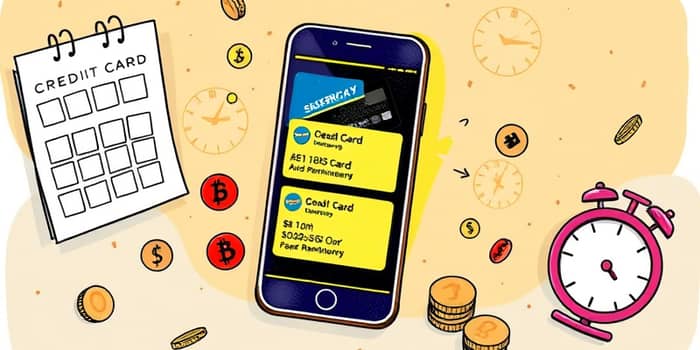
Missing a credit card payment can lead to fees, higher interest rates, and a hit to your credit rating. By setting up timely payment alerts, you can maintain control over your finances and enjoy peace of mind in your money management.
Credit card issuers typically require payment by the due date, which falls about three weeks after your statement closes. A late payment may trigger a late fee and increased interest rate, and habitual late payments can be reported to credit bureaus, harming your credit score.
Even a single missed payment can have long-term repercussions: a negative impact on your credit score can make future loans more expensive or harder to obtain. Payment alerts act as a safety net, reminding you when funds need to be transferred.
These alert types help you stay informed about upcoming obligations and current spending levels so you never face an unexpected penalty.
Enabling multiple channels ensures redundancy—if you miss an email, you’ll see an SMS or app alert instead. For the most real-time updates on your spending, push notifications are highly recommended.
Each issuer offers a slightly different interface, but the process is generally similar. Below is a concise table outlining key steps and customizable alert options for top U.S. credit card providers.
After selecting your preferred methods and alert types, be sure to save your settings. You can usually toggle each notification on or off and choose lead times for reminders.
If you miss a payment, act quickly. Some issuers offer a short grace period—typically up to 15 days—to post the payment without additional penalties. Check your issuer’s policy, then make the payment immediately to avoid further late fees and interest charges.
If a payment posts late, you’ll incur a fee and possibly a higher interest rate. The missed payment is usually reported to credit bureaus after 30 days, which can lower your creditworthiness.
Below are the primary consequences of a late credit card payment:
1. Late Fees and Higher Interest Rates: You’ll be charged a fee according to your card’s terms, and your APR may rise.
2. Credit Bureau Reporting: After 30 days, late payments are typically reported to Equifax, Experian, and TransUnion, which can damage your credit score.
3. Long-Term Financial Strain: A lower credit score can increase borrowing costs and limit access to favorable loan or mortgage rates.
How can I change my credit card due date? Contact your issuer directly—most will let you shift your due date to better match your cash flow.
Can I set up multiple reminders? Absolutely. You can usually enable SMS, email, and push notifications simultaneously to create a layered reminder system.
What if I only make the minimum payment? You avoid late fees but incur interest on the remaining balance, which increases your overall debt over time.
Maintain financial health by following these expert recommendations:
Opt to pay your bill in full every month if possible to eliminate interest charges.
Review and update your alert settings whenever you change contact information or devices. An undelivered alert is no alert at all.
Monitor your statement and reporting dates. By paying before the reporting date, you can lower your card’s reported balance, improving your credit utilization ratio.
Use your issuer’s official mobile app for the fastest and most secure delivery of notifications and to ensure you receive accurate, up-to-date information.
Implementing these strategies and harnessing the full range of payment alerts will help you stay organized, avoid costly penalties, and protect your credit score. With a reliable alert system in place, you can focus on achieving your financial goals without the stress of missed credit card payments.
References













